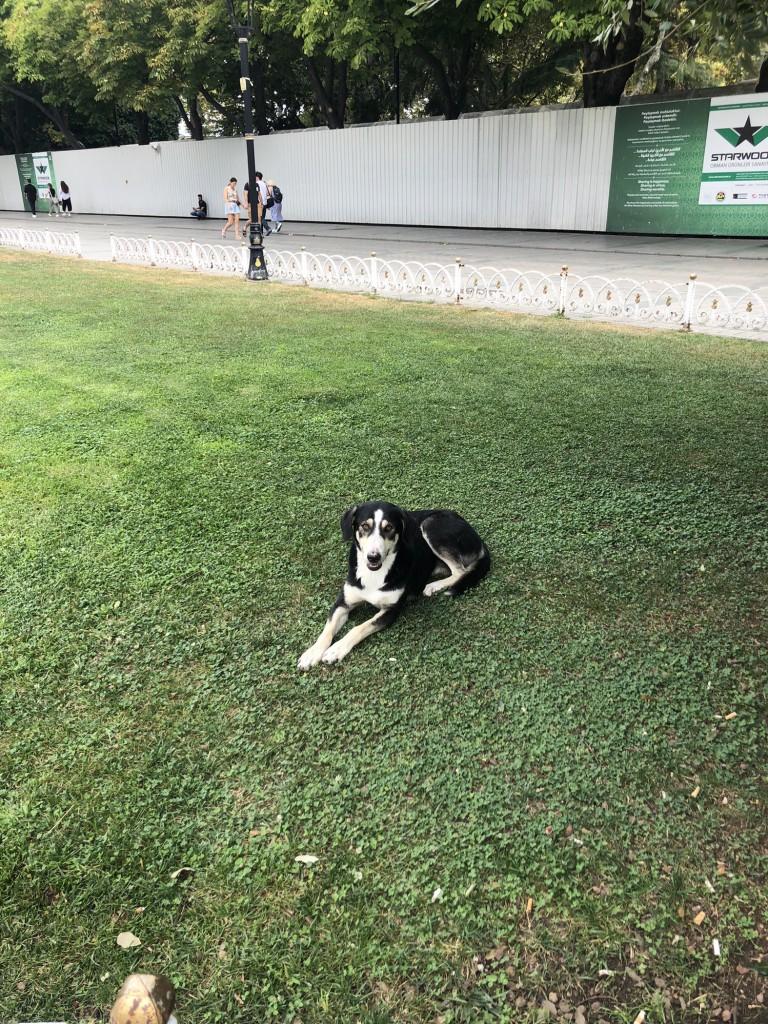Roaming through Istanbul’s streets, shops, mosques and traffic are thousands of stray dogs.
The city’s relationship with canines is centuries old and part of the city’s charm.
In the Neolithic temples of Göbekli Tepe in South-eastern Anatolia, archaeologists came across an unexpected find. One of the earliest pieces of evidence of the domestication of dogs comes from what is thought to be the oldest man-made structures ever unearthed.
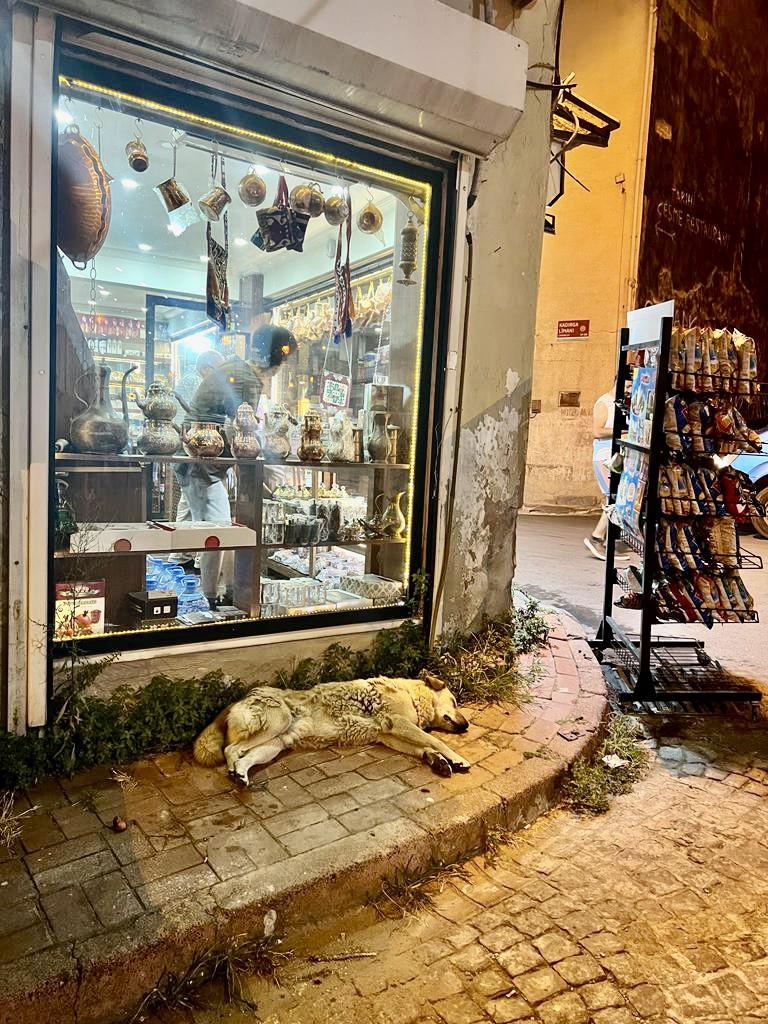
From the hounds loved by the first Anatolian shepherds to the canines cared for by Istanbul’s residents, Turkey’s affection for homeless dogs is as unique as it is humane.
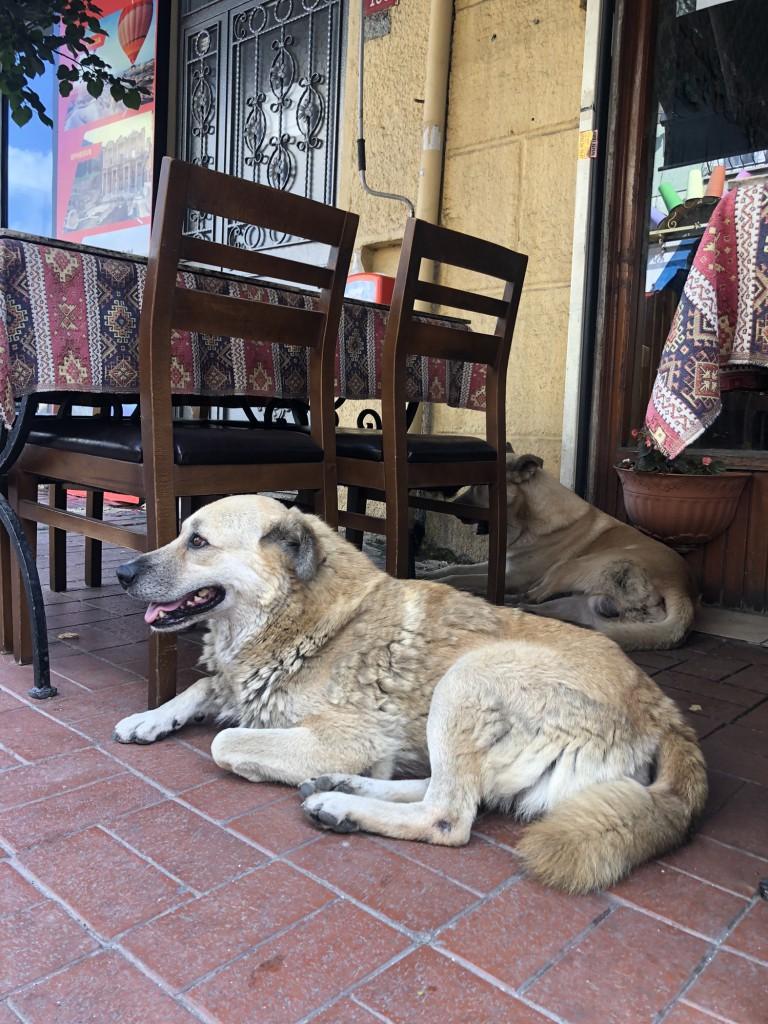
Only the most devoted dog lover could describe Istanbul’s strays as cute. Patchy, dirty, and scarred coats mark most, while you’d be fortunate to witness petting or intimate moments between people and stray dogs.
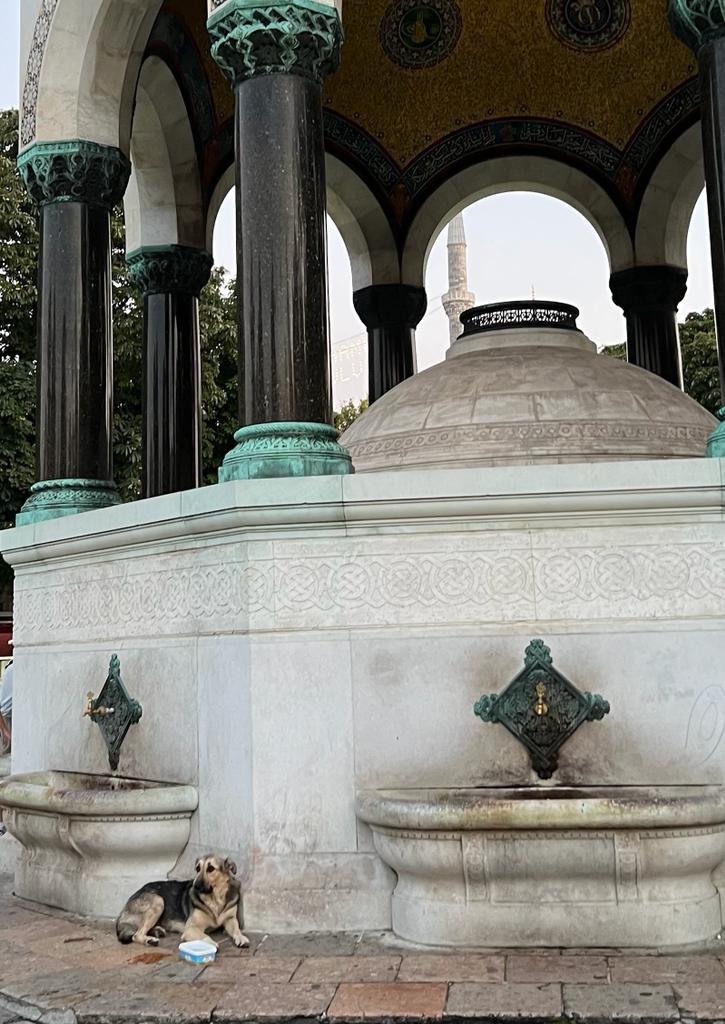
Unhoused but not unloved
Though the dogs’ tactility remains largely untested, many in Istanbul make consistent and conscientious efforts to make their lives as comfortable as possible. Food scraps and water are prepared and left at regular places and intervals, makeshift shelters of cardboard and blankets are set out for shade or warmth, while the wheels of thousands of taxis, cars and delivery trucks steer carefully around ponderous pooches. The rush of city life slows down for stray dogs to wander and cross safely at will.
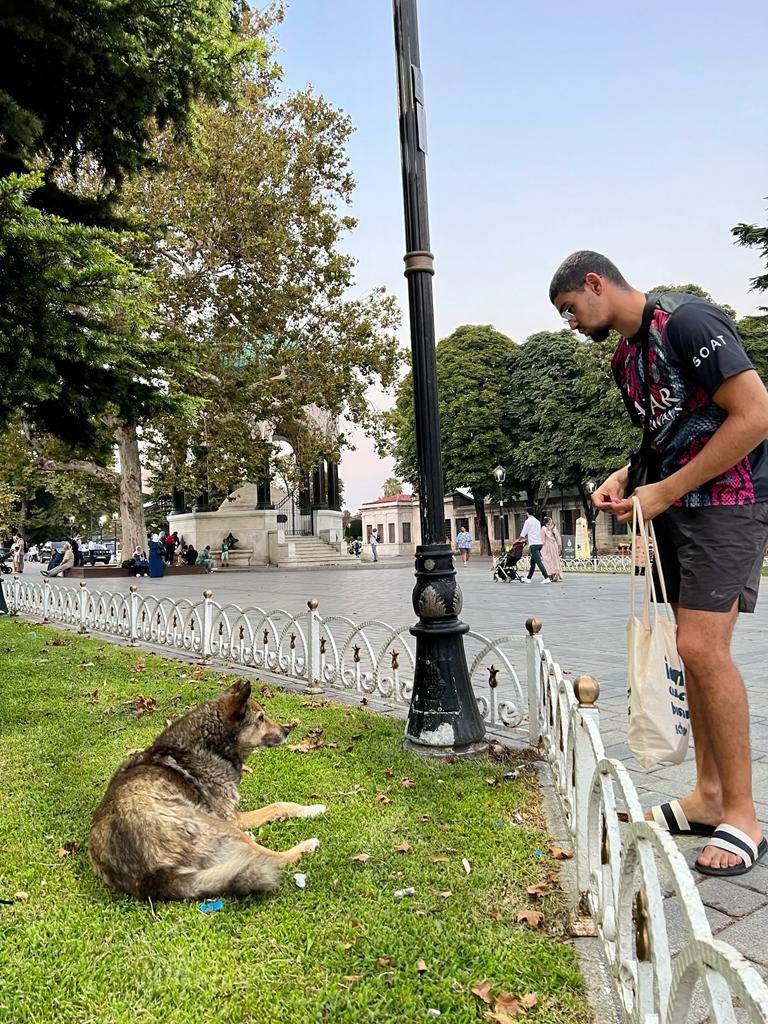
The West’s narrow and judgemental perception that large stray dog populations are indicative of an uncaring society is challenged in Istanbul. Yes, the dogs are homeless. No, they’re not unloved.
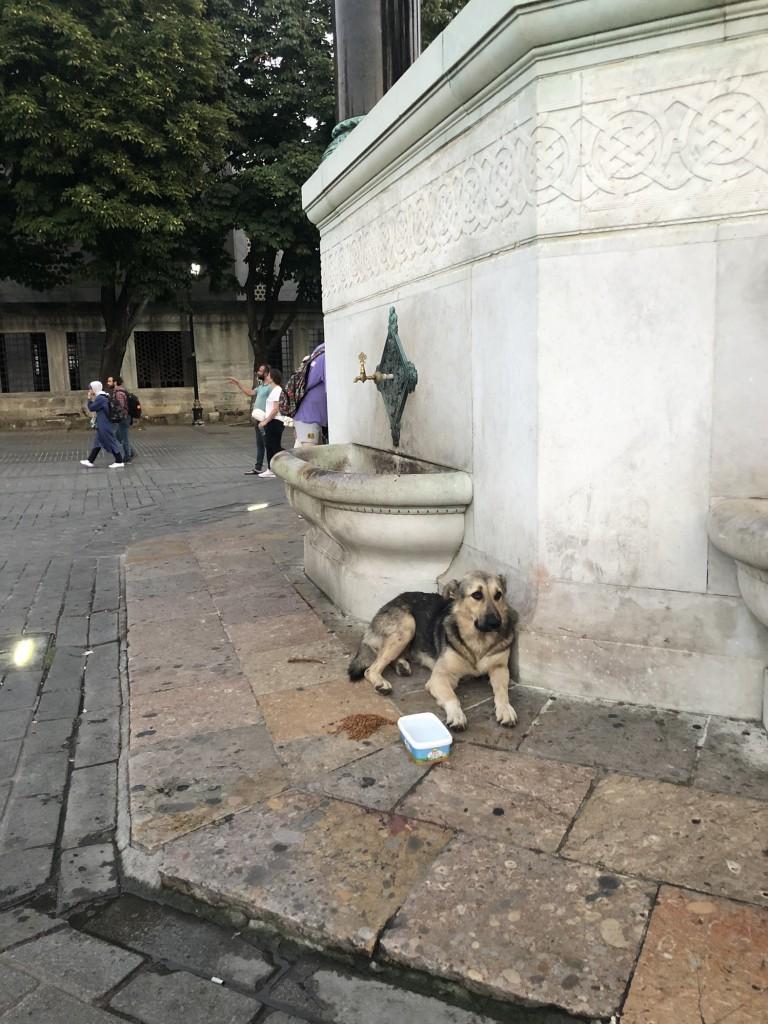
Barked by law
Turkey has a revolutionary legal framework that protects strays in its cities and communities which sits in harmony with what Islamic teachings state about the treatment of animals. Perhaps the message of the transcendental motivates a more compassionate way of coexisting with a species that for thousands of years has constantly evolved to appease humans. Man’s best friend thrives here despite existing on the periphery.
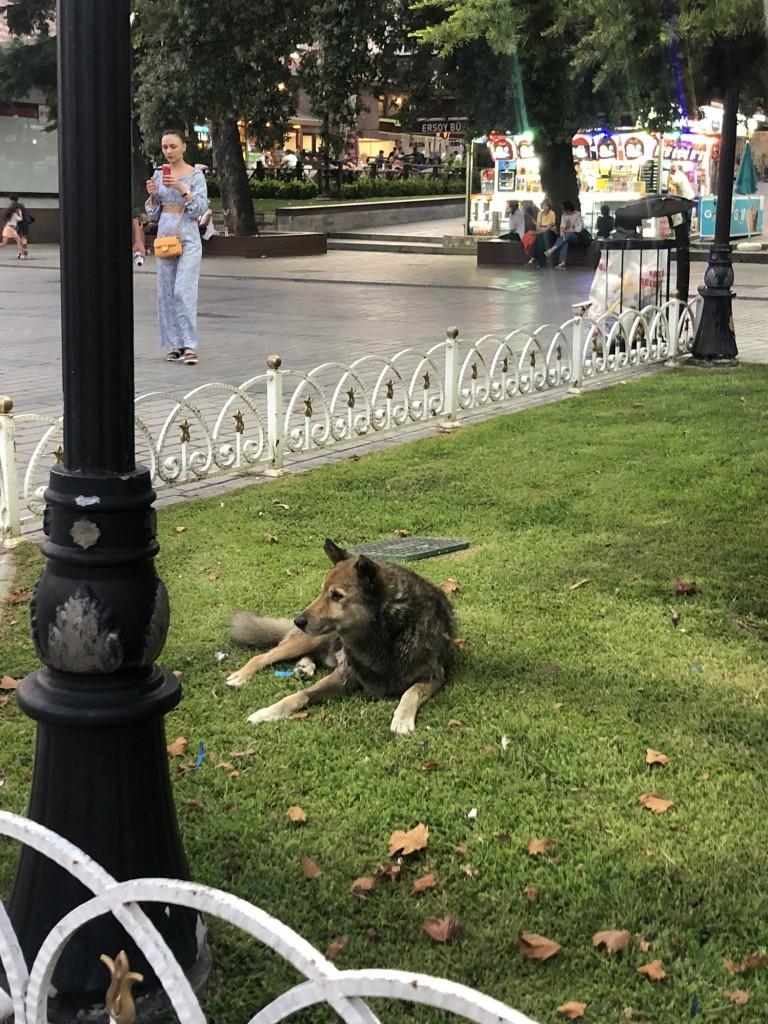
While the sentiment of caring for strays is strong, the practicalities and problems of having huge populations of dogs roaming requires a plan, and money. Hungry dogs will bark at night, cause chaos with pack behaviour, often shred rubbish bags waiting for collection, and like all creatures create waste in and around the pavements and parks where 15 million inhabitants live, work and breathe.
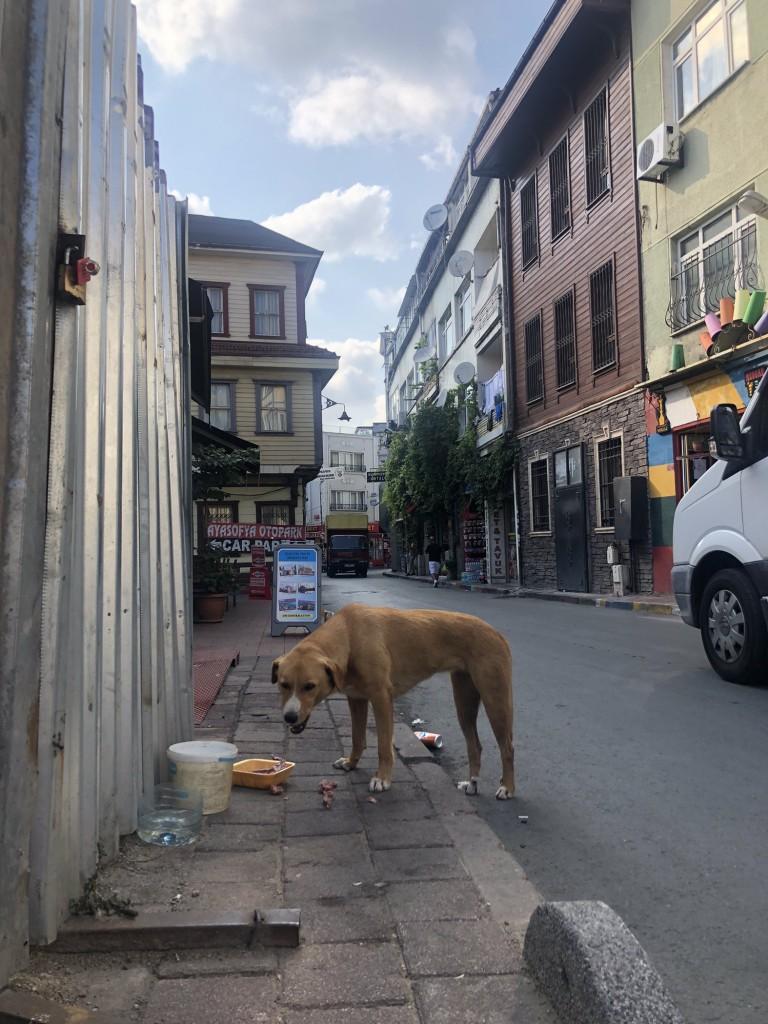
Major dog-culling projects of the past were decried as cruel and public opinion at the voting booth forced legislation that protects stray animals, and a welfare fund that municipalities use to support sterilization programmes (between 2004 and 2020 over a million dogs were neutered and vaccinated across the country) and provide medical care to stray dogs. Animals returned to the streets after treatment are tagged – indicating to citizens that the dog has been cared for, has a medical record, and is not a breed prone to aggressive traits.
Good Boji!
While public goodwill and government grants provide much to the protection and welfare of Istanbul’s dogs, their numbers require animal charities to be constantly fundraising to keep pace with needs. The latest, and perhaps most ingenious initiative, is the launch of a cryptocurrency named ‘Boji’ after the social media celebrity dog who rides Istanbul’s public transport and has a legion of fans and followers.
Istanbul’s strays also made it to the big screen in 2021 with Elizabeth Lo’s award-winning film Stray that follows its protagonist Zeytin, a female Labrador-cross through Istanbul – documenting her interaction with the city and inhabitants, dogs and humans alike.
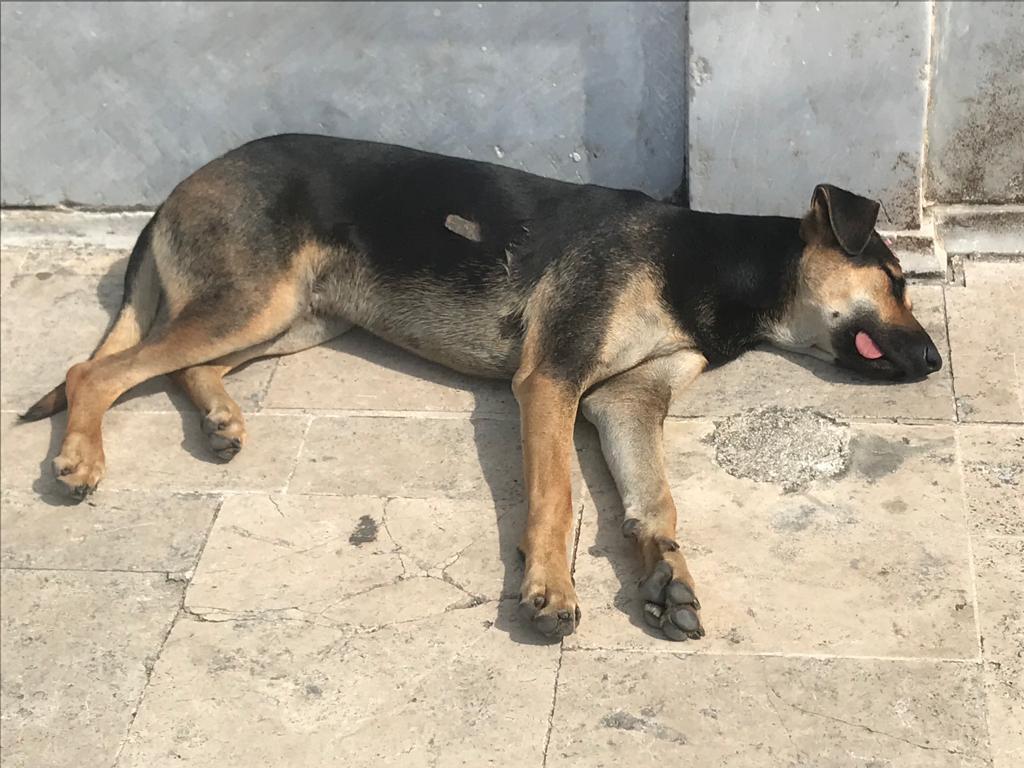
The last word on @battleface’s look at Istanbul’s strays goes to Turkish Nobel Laureate Orhan Pamuk – renowned for his writing that probed Turkish culture and identity – with his take on dogs in his novel, My Name is Red: “Dogs do speak, but to only those who listen.”
